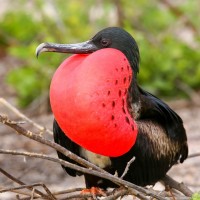Witness Ecuador’s stunning volcanic archipelago with its extraordinary plants and remarkably tame animals — a naturalist’s and photographer’s dream. Discover the geology, geography, history, botany, ichthyology, entomology, evolution, and natural history of the Islands with expert naturalists. And naturally, our journeys are designed to leave a light footprint and support local conservation efforts.
A Galapagos Cruise with Naturalist Journeys is a terrific way to immerse yourself in these stunning islands, while still leaving a light footprint. Join one of our Galapagos wildlife tours or take a look at one of our other South American birding tours.
Guided Group Tours
Group travel is rewarding and fun! With more eyes you see more species. Travel Planners of Naturalist Journeys have been creating memorable journeys for 40+ years. We offer you small-group birding and nature tours, limited to just 8-13 persons led by expert guides. Learn and explore with like-minded people, enjoy local food and culture, and immerse yourself in birding and nature.
-
 Journey to the GalápagosOctober 30 - November 7, 2025, w/Machu Picchu extension
Journey to the GalápagosOctober 30 - November 7, 2025, w/Machu Picchu extension
Conservation Corner
We value conservation – it is at the heart of our work. All Naturalist Journeys’ tours support local conservation projects. Browse the links below to learn more about positive local work to save and conserve the wildlife and landscapes we visit.
Giant Tortoise Restoration
Researchers and collaborators of the nonprofit Galapagos Conservancy’s Giant Tortoise Restoration Initiative work to restore populations of tortoise through habitat management, breeding, and re-population efforts.
Mangrove Finch Efforts
45 native species of birds are found only in the Galapagos and eight of the Galapagos land bird species are listed as Vulnerable or higher on the IUCN Red List. Isabela Island is home to the entire population of Mangrove Finch, the most threatened species in the Galapagos, where its primary threat is the invasive avian nest parasite Philornis downsi. A captive rearing program is attempting to counter the impacts of this invasive fly.
The Charles Darwin Foundation
The Charles Darwin Foundation for the Galapagos Islands has operated since 1959 under agreement with the Ecuadorean government to provide scientific knowledge and conservation assistance. Currently the foundation focuses their research in three areas: Invasive Species, Sustainability, and Conservation Management, including land bird conservation.

